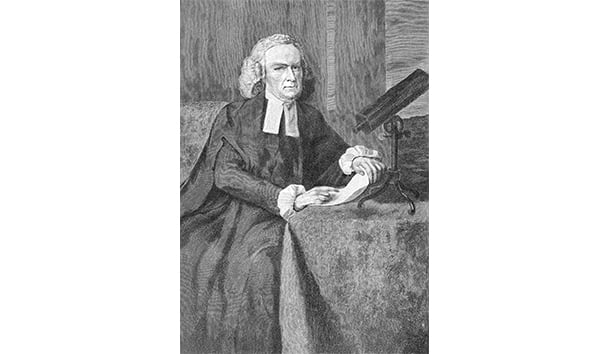I expected something quite different than I got when I began reading As A City on a Hill: The Story of America’s Most Famous Lay Sermon, by Daniel T. Rodgers and just released by Basic Books. I am not yet very far into it, but plan on taking it to read at odd moments on a deer hunt in Kansas—and afterward.
The author of the famous line in the title was John Winthrop, of whom the intellectual historian Perry Miller said in 1954, he “stands at the beginning of our [American] consciousness.” If that is so, then America’s consciousness has always been a false one. But it is not so. Winthrop, who was among the founders of the Massachusetts Bay Colony in 1630, composed his lay sermon “Model of Christian Charity” in mid-Atlantic aboard the Arbella. He wrote it as governor-elect of his small band of Puritans headed for the New World to effect what Professor Rodgers calls “a striking break in human affairs” by founding one particular settlement in North America that he proposed should be governed according to his “Model.” Its theme was, therefore, “not nationalistic but local and intense.” Yet, as Rodgers says, from the middle of the 20th century the “Model” has been accepted as “holding in embryo the nation’s most powerful and distinctive threads.”
But this, Rodgers shows, “is a modern invention and much of it is wrong.” None of Winthrop’s fellow passengers left record of having heard the “sermon” while at sea, and it is likely that it was never delivered at all. Though proof exists that the document was circulated in England during its author’s lifetime, copies had “all literally vanished from memory” by the end of the 17th century. In 1809 it was discovered accidentally in a bundle of papers, but not printed up until 1838. After that it disappeared, almost completely, for the second time.
Through the 1970s mention of “A Model of Christian Charity” was a hit-or-miss affair in standard histories of the United States. It was only in the decade of the 1980s . . . that the incongruously parallel work of a conservative Cold War president . . . and a radical, immigrant literary scholar, Sacvan Bercovitch, combined to make Winthrop’s text and metaphor famous
as a new but essential doctrine in the New America’s civic religion. “‘A Model of Christian Charity’ is old, but its foundational status is a twentieth-century invention.”
Equally of interest is Rodgers’ demonstration that the themes pursued in the “Model” were in no way “exceptionalist,” restricted to American civic patriotism. Rather,
During the long nineteenth-century era of economic and imperial expansion, conviction that a nation’s people had been uniquely commissioned to lead God’s forces of good and civilization played a bedrock role in patriotic cultures far beyond the United States. Even the idea that nations owed their essential character to a foundational moment, to a timeless and enduring origin statement, is far less unique to the United States than is typically acknowledged.
This is revisionist history at its quiet best. And it is elegantly written by a scholar who knows how to write prose.

Leave a Reply